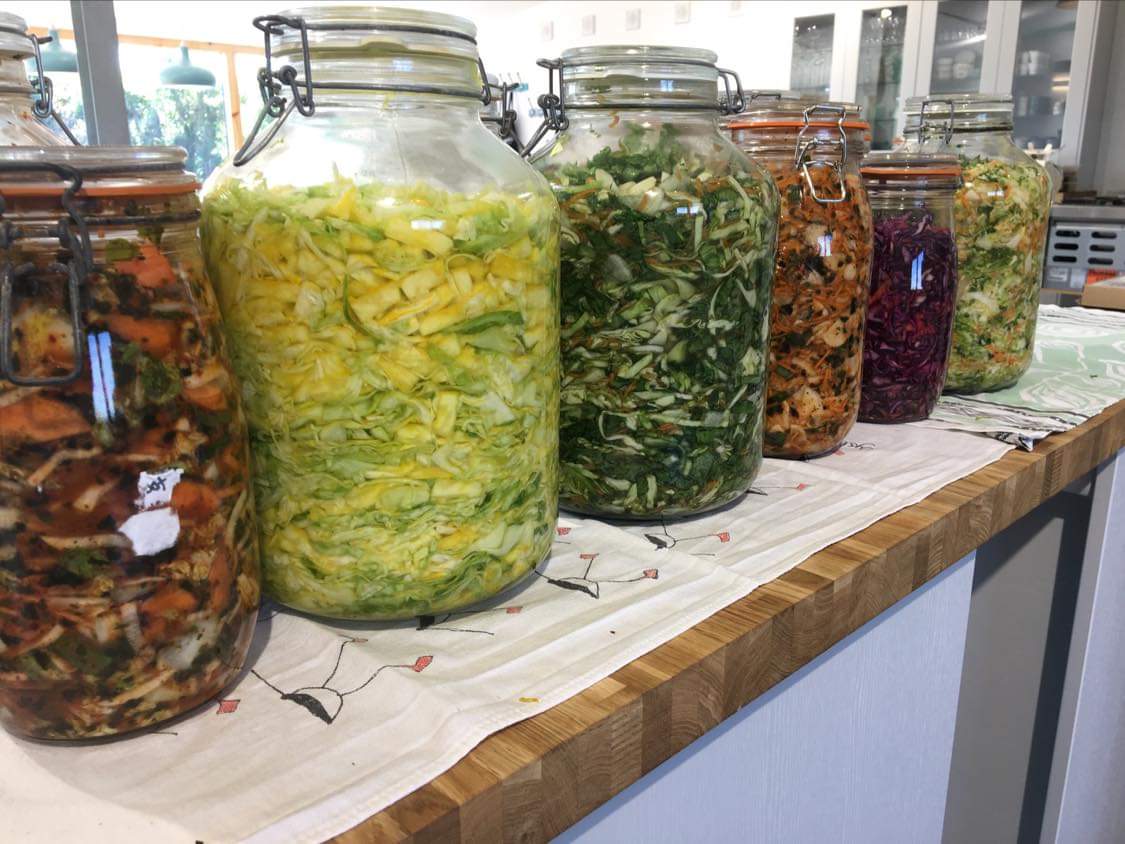
The Origins of Fermentation: A Journey Through Time
Fermentation, a process that has been an integral part of human culture and cuisine for thousands of years, is as old as civilization itself. This ancient practice, which involves the transformation of food through the action of microorganisms, has not only preserved food but has also added depth, flavor, and nutritional value to our diets. The origins of fermentation are a fascinating journey through time, revealing the ingenuity and adaptability of our ancestors.
Learn more at Introduction to Fermented Food & Drinks Course.
The Beginnings: A Happy Accident?
The exact origins of fermentation are shrouded in mystery, but it is widely believed to have been discovered by accident. Early humans, in their quest for food preservation, likely stumbled upon fermentation when they left grains, fruits, or milk exposed to the environment. The natural presence of yeast and bacteria in the air would have initiated the fermentation process, transforming these raw ingredients into something new, more flavorful, and longer-lasting.Imagine ancient humans finding a pot of milk that had been left out in the sun, now curdled into a tangy yogurt-like substance, or discovering that fruit juice left in a container had turned into a slightly fizzy, intoxicating drink. These early discoveries were likely met with both surprise and curiosity, leading to further experimentation and the intentional development of fermented foods.
Ancient Civilizations and Fermentation
As humans transitioned from nomadic hunter-gatherers to settled agricultural societies, the practice of fermentation became more sophisticated and widespread. The ancient Egyptians, for instance, were known to brew beer as far back as 5,000 BCE. Beer was not just a beverage but a staple of their diet, providing essential nutrients and calories.In Mesopotamia, the Sumerians also brewed beer and produced fermented bread, which played a central role in their culture and economy. The process of leavening bread with wild yeast was a significant advancement in baking, leading to the soft, airy loaves we enjoy today.
Fermentation was not limited to the Middle East. In Asia, the Chinese were fermenting vegetables, such as cabbage, into what we now know as kimchi, as early as 2,000 BCE. Soy sauce, a staple in Chinese cuisine, was another product of early fermentation practices, developed through the breakdown of soybeans and wheat by molds and bacteria.
Fermentation and Preservation
One of the primary reasons fermentation became so vital to early civilizations was its ability to preserve food. Before the advent of refrigeration, people needed reliable methods to extend the shelf life of their harvests. Fermentation provided a natural solution. By converting sugars into alcohol, acids, or gases, fermentation inhibited the growth of harmful bacteria and pathogens, allowing food to be stored safely for extended periods.This preservation method was especially important in regions with harsh climates, where fresh produce was not available year-round. Fermented foods like sauerkraut in Europe, miso in Japan, and yogurt in the Middle East became essential dietary staples, providing nutrients during long winters or dry seasons.
The Cultural Significance of Fermentation
Beyond its practical benefits, fermentation has held deep cultural and spiritual significance in many societies. In ancient Greece, the god Dionysus was revered as the deity of wine, a fermented drink that played a central role in social and religious ceremonies. Similarly, in Japan, sake, a rice-based fermented beverage, is considered sacred and is often used in religious rituals.Fermented foods have also been linked to health and well-being. Ancient texts from China and India discuss the medicinal properties of fermented foods, touting their ability to aid digestion, boost immunity, and promote overall health. This understanding of the health benefits of fermentation has only grown with time, as modern science continues to uncover the probiotic properties of fermented foods.
Fermentation Today
Today, fermentation is experiencing a renaissance. As people seek out more natural, sustainable, and health-promoting foods, the ancient practice of fermentation has found new relevance. From artisanal sourdough bread and craft beers to homemade kimchi and kombucha, fermentation has become a symbol of the slow food movement, emphasizing tradition, craftsmanship, and the importance of gut health.
In many ways, our modern interest in fermentation connects us to our ancestors, reminding us of the timeless relationship between humans and the microbial world. As we continue to explore and innovate with fermentation, we are not only preserving a rich culinary heritage but also contributing to a more sustainable and health-conscious future.
The origins of fermentation are a testament to human curiosity, ingenuity, and resilience. What began as a chance discovery has evolved into a cornerstone of culinary tradition across the globe. As we look back at the history of fermentation, we gain a deeper appreciation for this ancient practice that has nourished and sustained humanity for millennia. Whether you're a seasoned chef or a home cook experimenting with your first batch of sourdough, fermentation offers a tangible link to our past and a flavorful path to our future.
To learn more join us on our Introduction to Fermented Food and Drinks Course, with industry leader Colin Wheeler-James.
